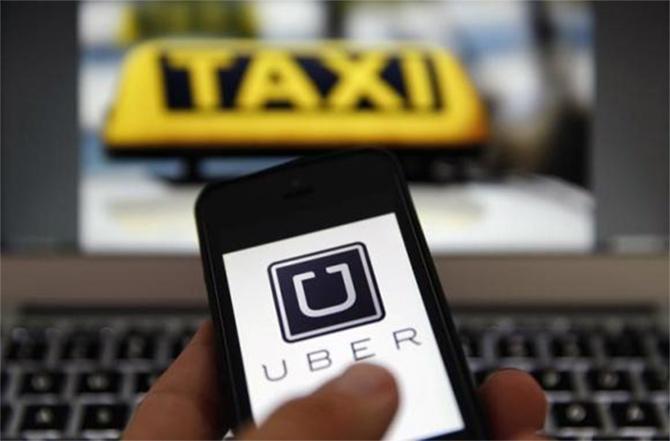Under the new rules, Karnataka has mandated ride hailing start-ups to provide digital printers, install panic buttons and have taxi signage on their vehicles.

US-based online taxi-booking app Uber has questioned Karnataka government's new regulations for ride-hailing apps, terming them as "regressive" and "practically impossible to comply".
It had written a letter to state Transport Minister Ramalinga Reddy, saying a few mandatory clauses like keeping a fleet of a minimum of 100 taxis, generating printed receipts and capping of charges are "unfortunately redundant and similar to the radio taxi scheme introduced by Karnataka way back in 1998".
The mandatory clauses "are regressive in nature and not in line with our business model".
Uber, which competes with the likes of Ola and Meru in India, requested the minister's intervention on the matter.
"(Uber) would be grateful if you can kindly direct the authorities concerned to look into our submissions on mandatory clauses, which are not only regressive, but also practically impossible to comply with," it argued.
Uber followed up the letter with another one on June 7, saying it had submitted all necessary documents required by the Transport Department to ensure compliance of some 100 vehicle rules for getting the licence.
"However, your office refused to accept our documents or even acknowledge our document submission," it wrote to the Commissioner for Transport and Road Safety on June 7.
"In view of this, we are submitting all the documents through Speed Post acknowledgment due today."
Under the new rules, Karnataka has mandated ride hailing start-ups to provide digital printers, install panic buttons and have taxi signage on their vehicles.
The company contended that it applied for a licence in Bangalore with all the required documents, but its application has not been accepted.
India, Uber's third-largest market, continues to be strategically important for the company, which has committed to investing over $1 billion here.
"In Karnataka... we have committed an economic contribution of Rs 99 crore towards creating livelihood opportunities to over 20,000 more driver partners in the next 5 years," the letter said.
Making a case for its technology-led business model, Uber maintained that many state governments in India have realized its potential in creating livelihood opportunities for citizens.
"Uber is committed to working with the state governments to frame rules that are progressive and support innovation and champion ease of doing business," it said.
This is not the first time the start-up, which is valued at over $60 billion, is facing issues with government regulations. It has had earlier run-ins with regulators across the world like France and the US as it competes with local taxi operators.









 © 2025
© 2025